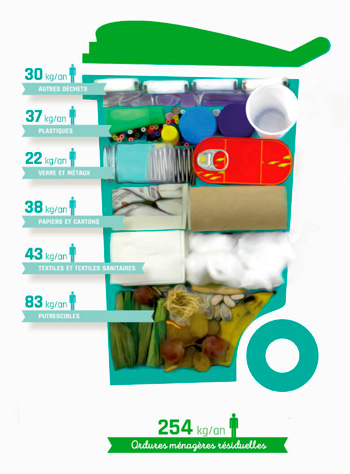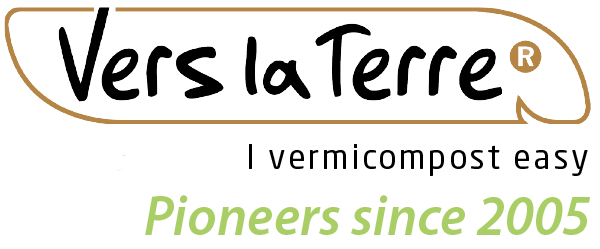Biowaste (or organic waste) is waste derived from natural plant or animal resources. It is biodegradable and therefore compostable. It includes
- Kitchen and table waste (KTW), i.e. fruit and vegetable peelings, meal leftovers, dairy products, meat and fish,
- Food industry waste,
- Cellulose-based waste such as cardboard, tissues, paper towels, etc,
- Green waste (vegetable waste from gardens and green spaces, such as dead leaves, hedge trimmings, wood shavings, etc.)
Putrescible waste is fermentable waste likely to degrade spontaneously as soon as it is produced. It represents around 30%, or 1 third, of a household's residual household waste (RWH).
However, all this residual waste, once mixed together, is soiled and "pollutes" each other.
- If it is incinerated, the materials are not recycled. What's more, burning organic waste composed essentially of water is totally counterproductive.
- If they are landfilled, the juices and leachates produced (which are harmful to our soil and groundwater), as well as the gases generated, will have to be collected and reprocessed. Hence the importance of offering recycling solutions.




